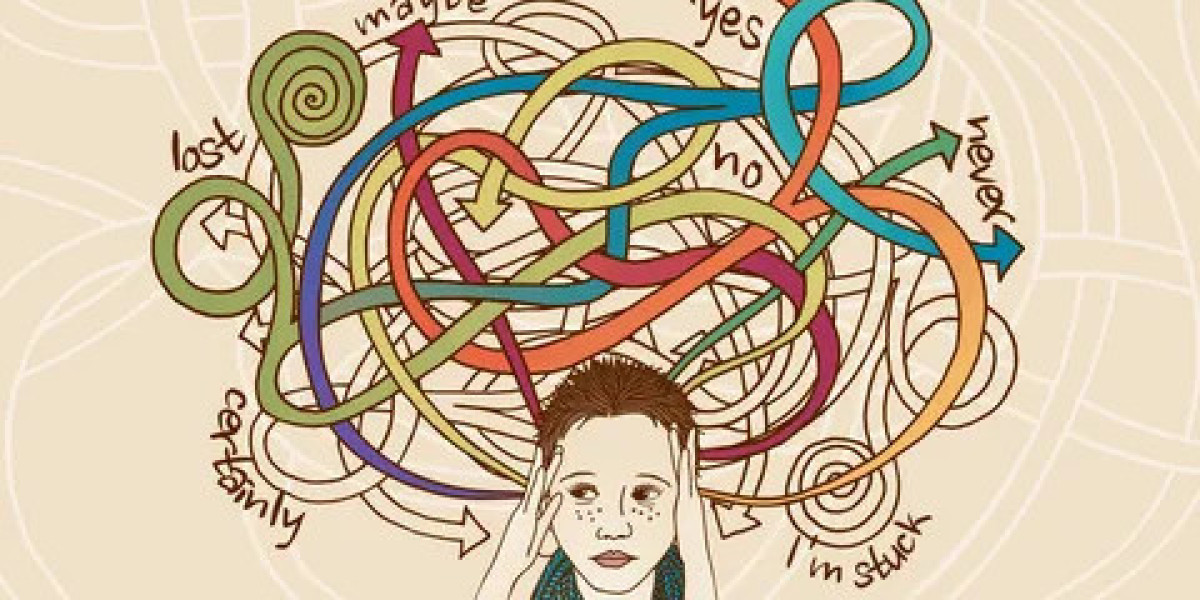Overview
A wide range of therapy approaches, interventions, and lifestyle changes are used in anxiety treatment with the goal of controlling and reducing the symptoms of anxiety disorders. But psychoeducation—which equips people with information on anxiety, relevant treatment options, and self-management techniques—is a crucial element that is frequently disregarded. This article will discuss the value of psychoeducation in treating anxiety, how it helps people make informed decisions, how to use psychoeducation effectively, and how it improves treatment results and people's general well-being.
Recognizing Psychoeducation's Place in the Treatment of Anxiety
Education on Anxiety Disorders:
- Understanding Anxiety: Psychoeducation gives important details on the various kinds of anxiety disorders, including their signs and symptoms, frequency, and possible causes. Recognizing anxiety as a complicated but manageable illness lessens its stigma, increases self-awareness, and motivates people to seek treatment
.b. Neurobiological and Psychological Aspects:
Teaching people about the neurobiological and psychological aspects that underlie anxiety disorders improves their understanding of the mechanisms, brain-behavior relationships, and function of neurotransmitters like dopamine and serotonin.
Options and Modalities of Treatment:
Examining Treatment Options: Psychoeducation exposes people to a range of anxiety treatment options, including medication options, complementary therapies like yoga or acupuncture, mindfulness-based approaches, exposure therapy, cognitive-behavioral therapy (CBT), and mindfulness-based approaches.
Evidence-Based Practices:
Giving people information about evidence-based anxiety therapy methods enables them to make well-informed choices based on available data, treatment goals that are specific to them, efficacy rates, and possible adverse effects. Comprehending various therapy approaches enables individuals to take an active role in their therapeutic process.
Self-Control and Coping Mechanisms
a. Stress Management Techniques:
Teaching stress management techniques such as progressive muscle relaxation, mindfulness meditation, deep breathing exercises, and time management skills is part of psychoeducation. These techniques enable people to control everyday stressors that fuel anxiety.b. Cognitive Restructuring and Coping Skills: People can manage anxiety triggers, lessen rumination, and foster emotional resilience by learning about cognitive restructuring, confronting negative thought patterns, and cultivating adaptive coping skills.
Techniques for Psychoeducation That Work Well in the Treatment of Anxiety
Customized Education Plans:
- Evaluation and Goal-Setting: Perform evaluations to comprehend the unique characteristics, strengths, triggers, and treatment preferences of each person with anxiety. Establish collaborative goals for psychoeducation based on the needs for information and the learner's preferred method of learning.b. Information Delivery: Explain difficult ideas regarding anxiety disorders, available treatments, and coping mechanisms using simple, understandable language and visual aids. Divide the material into digestible chunks to improve comprehension and memory.
Engaging Workshops and Sessions:
Provide workshops or support sessions for group psychoeducation so that people can ask questions, share experiences, and get support from peers and mental health experts. Group environments lessen feelings of loneliness and promote a sense of community.b. Role-Playing and Skill-Building: To reinforce psychoeducation ideas, include interactive activities like role-playing situations, problem-solving exercises, and skill-building projects. Applying knowledge practically improves comprehension and encourages the development of anxiety control skills.
Working Together to Make Decisions
- Collaboratively discuss treatment planning with patients, taking into account their preferences for therapeutic modalities, pharmaceutical needs, lifestyle modifications, and the establishment of reasonable treatment objectives. Promote collaborative decision-making and active involvement.b. Empowerment and Informed Consent: Ensure that people are aware of the advantages, dangers, and anticipated results of various anxiety therapy alternatives. Get people's informed permission before implementing any treatment plans, and give them the freedom to freely voice any concerns they may have.
The Beneficial Effect of Psychoeducation on the Results of Anxiety Treatment
Better Treatment Adherence and Engagement:
- Informed Decision-Making: Psychoeducation encourages people to make knowledgeable decisions about the types of anxiety treatments they can choose from, which improves treatment engagement and adherence. People feel equipped with the knowledge and understanding to actively engage in their treatment plans.b. Less Treatment Dropouts: Improving continuity of care and reducing treatment dropouts are achieved through educating people on the nature of anxiety disorders, treatment expectations, and potential obstacles. People with knowledge are more likely to stick with a treatment plan even when things go tough.
Enhanced Self-Efficacy and Coping Capabilities:
a. Acquiring Skills:
Psychoeducation gives people the coping mechanisms, self-control tactics, and problem-solving methods they need to successfully control their anxiety symptoms. Enhanced coping abilities promote confidence, self-efficacy, and mastery over anxiety triggers.b. Developing Resilience: Resilience, adaptive stress-reduction strategies, and emotional regulation are enhanced by an understanding of the neurobiological and psychological dimensions of anxiety. People with psychoeducation acquire a toolkit of abilities to deal with anxiety problems in a proactive manner.
Decreased Stigma and Enhanced Support:
a. Raising Community Awareness:
Psychoeducational programs educate the public about anxiety disorders, thereby lowering stigma, prejudice, and misunderstandings. People seeking anxiety treatment can find more acceptance, understanding, and support in educated societies.b. Support from Family and Social Networks: Providing information about anxiety disorders and available treatments to family members, caregivers, and social circles strengthens support systems. Well-informed support networks offer compassion, motivation, and useful help, fostering overall wellbeing.
Case Study: Sarah's Experiences in Treating Anxiety with Psychoeducation
Sarah, a 35-year-old working woman, experienced social anxiety and panic attacks, which affected her ability to function at work and in social situations. An essential component of her anxiety treatment was psychoeducation.
Understanding Anxiety:
Sarah attended psychoeducational courses where she gained knowledge about social anxiety triggers, panic disorder, and cognitive-behavioral techniques for managing anxiety. Fear and confusion subsided as she realized what was going on.
Examining Treatment Options:
Sarah investigated various anxiety treatment approaches, including cognitive behavioral therapy (CBT), exposure therapy, and mindfulness exercises, under the supervision of her therapist. Sarah was able to make well-informed decisions that complemented her preferences and objectives thanks to psychoeducation regarding evidence-based treatments.
Developing Coping Skills:
During psychoeducation sessions, Sarah acquired skills in stress management, cognitive restructuring exercises, and relaxation. She was able to control panic episodes, lessen social anxiety, and enhance her general wellbeing thanks to these abilities.
Family Involvement: Sarah's family attended psychoeducational sessions to gain insight into her anxiety issues, acquire constructive communication techniques, and work together on her treatment plan. Knowledgeable family assistance increased Sarah's self-assurance and drive.
Long-Term Benefits:
Sarah's anxiety symptoms, productivity at work, and social interactions all significantly improved over time. Her psychoeducation gave her the information, abilities, and support systems she needed to control her anxiety over time and live a better quality of life.
In summary
By providing people with the knowledge, abilities, and informed choices needed for both effective anxiety management and general well-being, psychoeducation is essential to the treatment of anxiety. Through interactive workshops, collaborative decision-making, and structured education programs, people learn about anxiety disorders, coping mechanisms, treatment alternatives, and self-management techniques. In addition to promoting resilience and empowerment in the path toward anxiety treatment and mental wellbeing, psychoeducation has a favorable effect on reduced stigma, higher social support, better treatment adherence, and improved coping abilities. When psychoeducation is incorporated into anxiety treatment plans, people with anxiety disorders are encouraged to make educated decisions, take an active role in their recovery, and seek holistic healing.



